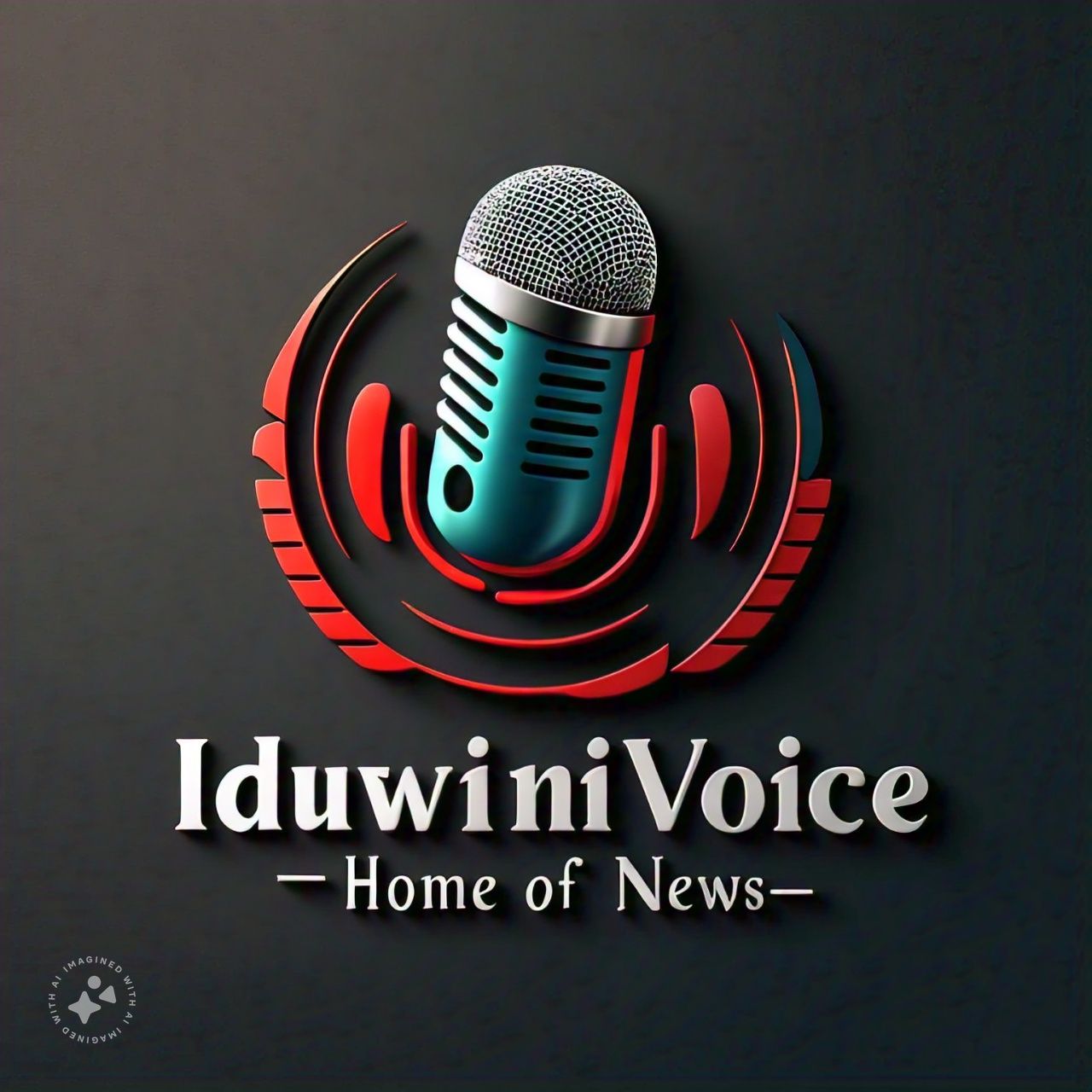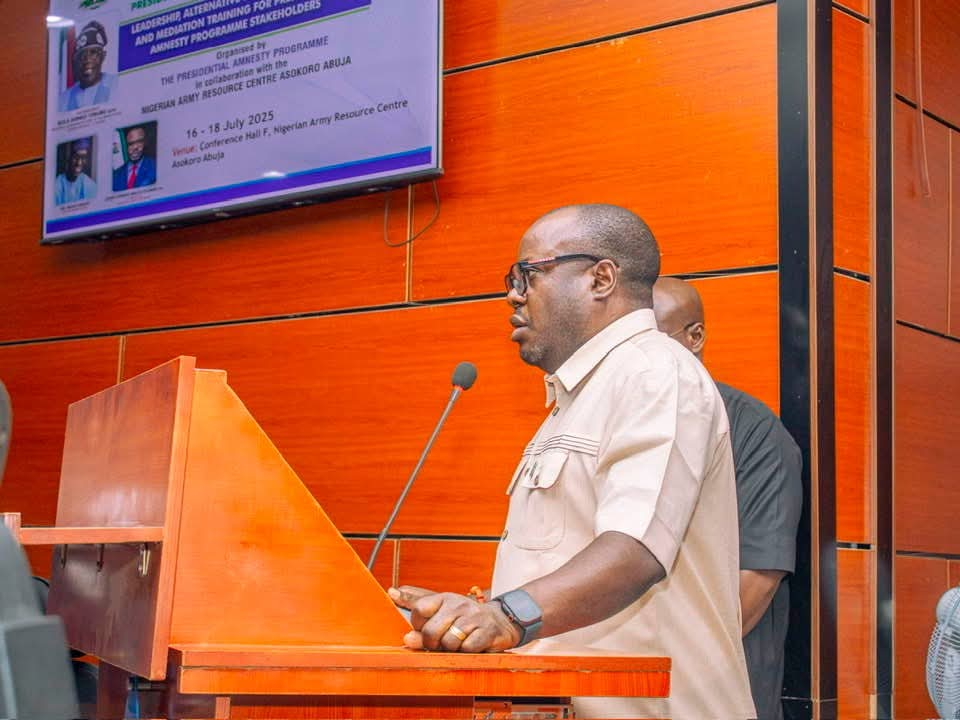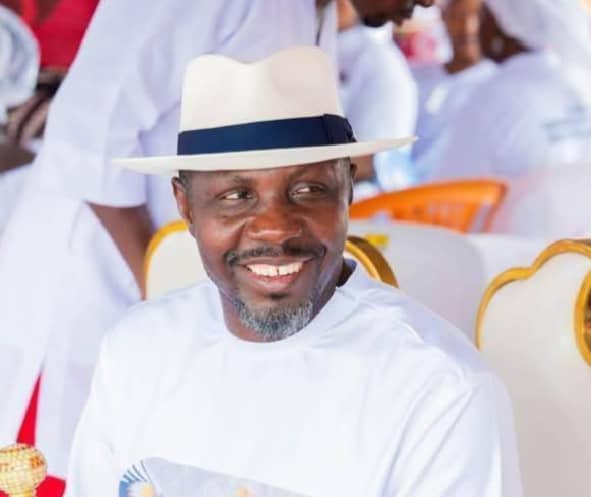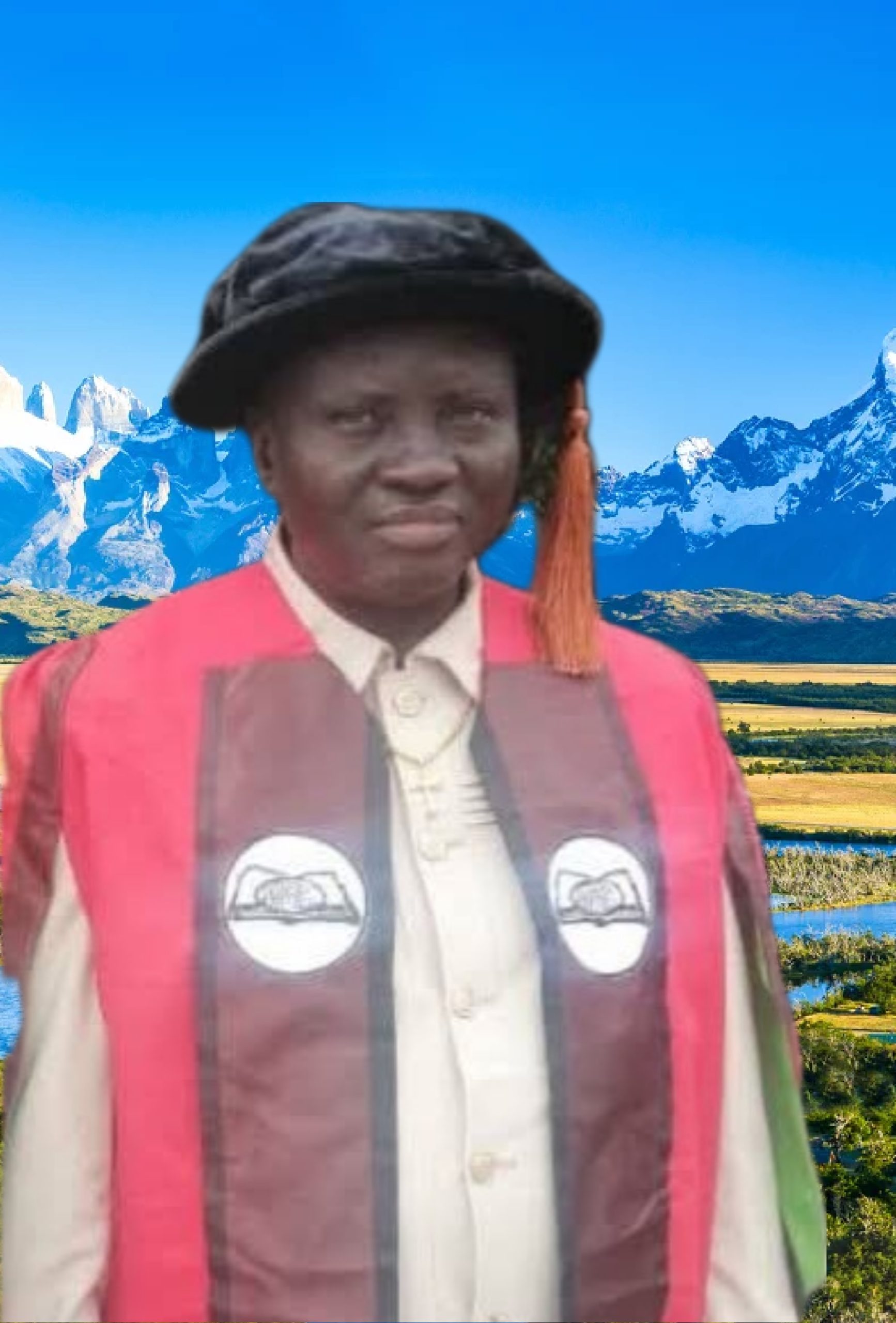Columns

Can WiFi 6 ignite a new industry story?
By Okoh Aihe
THE Stakeholders Consultative Forum on Emerging Technologies which held in Lagos on September 19, 2024, as a precursor to the coming of WIFI 6, has animated industry discussions on the beautiful shape of things to come.
It is a new world out there and the Nigerian Communications Commission, NCC, with necessary approvals from the International Telecommunications Union, ITU, has planned to formally introduce the technology to the nation but not before following its long laid down procedure of public consultation.
The forum was themed: “The Use of GHz (5925-7125)MHz for WiFi 6 and IMT applications in Nigeria”.
Abraham Oshadami, Executive Commissioner, Technical Services, ECTS, who stood in for Dr Aminu Maida, Executive Vice Chairman, EVC, of the NCC, called the gathering a tradition which provides a platform for the regulator to consult with operators, investors, customers and other relevant stakeholders to examine, share and constructively exchange ideas to ensure optimal utilisation of the benefits of the spectrum to achieve regulatory excellence and operational efficiency.
There was so much to talk about, especially the significance of the deploying WiFi 6 in the lower band 6GHz Spectrum Band, specifically between the range 5925 and 6425 MHz. WiFi 6 represents a quantum leap in wireless technology as it offers the opportunity to support more devices with faster speed and greater reliability.
The regulator told its audience that the development is “particularly very strategic in a world increasingly dominated by the Internet of Things, IoT, where everything, from smart homes to advanced industrial systems, depends on robust wireless connectivity. The deployment in the lower 6GHz is not just about faster Internet, it’s about enabling the next generation of technological innovation and economic growth.”
What the regulator was putting on offer was like a trophy torch from WRC-23. The continent, in taking a long view at future technologies, prepared hard for the conference and was rewarded even beyond measures. There was literally a battle between WiFi and IMT with the earlier enjoying a clear victory which also meant victory for the continent to introduce WiFi 6 for extensive use.
“Prior to the 2023 World Radiocommunications Conference, African Telecommunications Union, ATU, had already concluded its decision on the 6GHz Spectrum Band and recommended that administrations in Africa adopt the lower 6GHz for WIFi-6 applications. This decision was taken to WRC-23 and at the end of the day, Africa came out victorious,” Oshadami said.
This writer was told that the band is for unlicensed use, meaning that users don’t have to obtain licences from, or pay any licence fee to the regulator, except to follow the laid down regulations just to ensure discipline in operations and avoid chaos and arbitrariness. Its introduction is expected to excite the industry and activate greater connectivity.
Nigeria is not alone in this journey or let me say the Africa Region has only tried to secure something that has facilitated connectivity in other parts of the world. For instance, the United States Federal Communications Commission, FCC, approved the opening of the 6-GHz band for unlicensed use in the United States in April 2020.
The move demands that the FCC frees1200 MHz bandwidth for use by WiFi 6E devices, which feature an extra radio that lets them communicate in the 6-GHz band. The 6-GHz offers more than twice as much WiFi bandwidth as the 5-GHz band. The FCC plan is to encourage wireless innovation and support smart homes and offices and expanding the Internet of Things, IoT.
Other countries and regulatory bodies already delivering 6GHz unlicensed spectrum to their residents, according to a CISCO report, include Chile, the European Union, Japan, Mexico, South Korea, Taiwan, the United Arab Emirates and the United Kingdom.
Without doubt, this is a good company to keep. And I am sure the stakeholders who gathered in Lagos will already be looking forward to how they can deploy WiFi 6 spectrum to change the story of their world. I will not try to compare the rate and level of connectivity in any of the countries listed above. However, NCC seems pumped up to want to change the level of connectivity, and even quality of networks with its latest move.
An industry source explained that there will be more Internet connectivity which may even profit the mobile operators. When there is congestion on the network, the source explained, the operators will simply offload on the WiFi. Besides, there will be wider availability of Internet for the ordinary folks, even as it will be much easier for people to deploy WiFi in parks and other public places.
Making a compelling case for WiFi in an article, Connecting to the Future with 6GHz WiFi, published in September, 2023, Alex Roytblat, Vice President, Worldwide Regulatory Affairs, WiFi Alliance, wrote: “The significance of Wi-Fi will only increase with the next generation of wireless connectivity, as future use cases will require computational resources and connectivity that are hundreds, if not thousands, times faster than current International Mobile Telecommunications, IMT, applications.
“Next-generation connectivity will command immersive experiences such as virtual, augmented, and extended-reality, VR/AR/XR, wearable tech, artificial intelligence, AI, telehealth, industrial automation, the Internet of Things, IoT, and 3D-video,” he said.
While Roytblat submitted that the 6GHz WiFi was already delivering real socio-economic benefits in many countries; he also observed that the diverse and growing product ecosystem for 6 GHz Wi-Fi fits perfectly with broadband objectives in developed and developing countries — and without disrupting incumbent operations.
The NCC obviously will enjoy this point of view.
WiFi connectivity has more to do with speed, reliability and cost; the regulator has said that this will come at no cost but just regulations to enable responsible behaviour from users.
For the industry people who are used to paying for nearly everything they get from the regulator, including services, this may sound like strange music. Gbenga Adebayo, the ALTON President, told this writer within the week, that WiFi 6 is a positive development for the industry. It presents a win-win situation where everybody benefits as it will impact easy deployment, availability and service cost, even as more and more devices get connected. It is obviously a good turn for the industry, he observed.
The taste of the pudding, they say, is in the eating. So, NCC, when is WiFi 6 coming on stream? Our much maligned younger generation will be interested in the answer. Or will this be another story of Waiting for Godot?
Columns
Chief Denis Otuaro, the Guiding Star of PAP

By: Professor Binebai
The Niger Delta has found a beacon of hope in Chief Dr. Dennis Otuaro, a leader of unimpeachable integrity, courage, and vision. As the helm of the Presidential Amnesty Programme (PAP), he has emerged as a champion of transformation, inspiring a region and a nation with his unwavering commitment to empowerment and progress.
In the realm of Nigerian leadership, there are those who leave an indelible mark on the sands of time, and Chief Dr. Dennis Otuaro is one such luminary. As the helm of the Presidential Amnesty Programme (PAP), he has etched a narrative of hope, redemption, and triumph, illuminating the path for the people of the Niger Delta. This tribute is a celebration of his extraordinary leadership, vision, and unwavering commitment to the cause of empowering the youths and transforming the region.
Chief Denis Otuaro’s stewardship of the Presidential Amnesty Programme (PAP) has indeed been a renaissance, a majestic sunrise after a long, dark night, as he infuses the initiative with the radiance of a new dawn.
Like the mythical Anansi, the wise and cunning spider of West African folklore, Otuaro’s leadership has woven an intricate web of hope and opportunity, capturing the challenges of the Niger Delta and transforming them into a rich mosaic of promise and progress. His vision, akin to that of the venerable Oracle of Delphi, has deciphered the complexities of post-conflict reconstruction, guiding the demobilised youths through the labyrinth of uncertainty, and into the bright light of empowerment and redemption.
Otuaro’s journey has been sustained by a resolute commitment to the cause, his leadership style a masterful blend of courage, wisdom, and compassion. His tenure has been marked by a symphony of progress, as the PAP, under his guidance, has orchestrated a harmonious balance of pacifism and pragmatism, transforming the region into a veritable Garden of Eden.
Like Athena, the Greek goddess of wisdom, Otuaro wields the power of transformation, his touch turning the arid landscape of despair into a lush oasis of hope and prosperity. His leadership has become a byword for sagacity, a testament to the transformative power of vision, courage, and compassion.
In the pantheon of Nigerian leaders, Otuaro’s name shall be etched alongside the greats, his legacy a shining testament to the indomitable human spirit, as he continues to weave a new narrative of hope, redemption, and triumph for the people of the Niger Delta.
The Niger Delta has found a leader of repute, a leader of courage, a leader of transformation, a leader of goodwill in the PAP. Let egocentric economic buccaneers and demonic agencies stop their campaign of calumny against this leader of glory.
To those who seek to undermine his efforts, we say: let envy and malice be silenced! Let the progress of the Niger Delta be the benchmark for greatness! Let Otuaro’s leadership be the inspiration for a new generation of leaders!
Columns
A Legendary Legacy: The Enduring Odyssey of High Chief (Dr.) Government Oweizide Ekpemupolo

By: Professor Ben Binebai
In the realm of Nigerian leadership, one name resonates with mythical significance – High Chief (Dr.) Government Oweizide Ekpemupolo, affectionately known as Tompolo. Born on 12 April 1971, in Warri, Delta State, Tompolo has etched his name in the annals of history, leaving an indelible mark on the Niger Delta region. As a former militant commander of the Movement for the Emancipation of the Niger Delta (MEND) and chief priest of the Egbesu deity, he has navigated the treacherous waters of war and peace, leveraging his remarkable journey to bring succour and development to his people.
Tompolo’s metamorphosis from a militant leader to a peace advocate is a testament to his unwavering commitment to the progress of the Niger Delta. His decision to embrace the Amnesty Programme in 2009 marked a turning point, as he laid down arms and picked up the mantle of transformation. Today, he is revered as a hero, celebrated for taming the turbulent waters of the Creek boys and settling major political crises in the region. By putting the Ijaw image on the Nigerian map, Tompolo has redefined the narrative, showcasing the rich cultural heritage and resilience of the Ijaw people to the world.
A nationalist and statesman emerging from the boiling pot of agitation in the Niger Delta, Tompolo has consistently demonstrated his commitment to the development and progress of his people. His agency operates in close collaboration with the government, working tirelessly to implement projects and initiatives that benefit the Niger Delta region. His leadership style is characterised by quiet strength, strategic thinking, and an unwavering commitment to the progress of his people. His efforts have earned him recognition and accolades from various quarters, solidifying his position as a dependable pillar of the Ijaw nation.
As the last voice of the Ijaw nation, Tompolo’s legacy continues to inspire hope and progress for generations to come. With institutions established for national economic stability and prosperity, his impact will be felt for years to come. Tompolo’s story serves as a beacon of hope and resilience, inspiring his people to strive for greatness.
God bless this emergent leader of the Ijaw nation.
Columns
YOUNA: WARRI CRIES FOR PEACE AND JUJUSTICE

By: Ben Binebai
In the Niger Delta region of Nigeria, a city cries out for peace, justice, and unity. Warri, a land of rich cultural heritage and economic significance, has been plagued by recurring crises, sparked by provocative actions and claims of ownership by the Itsekiri group. The cry of Warri is a call to action, a reminder that our diversity is a strength, not a weakness, and that our common humanity is worth fighting for.
The Ijaw, Urhobo, and Itsekiri communities have coexisted in Warri for centuries, sharing a rich cultural heritage and a deep connection to the land. Occasionally uniting but deeply disunited because power and hegemony have often overshadowed their shared humanity, the people of Warri yearn for a future where their differences are celebrated, and their commonalities are the foundation of their unity. Warri’s significance extends beyond its current boundaries, as it has been a hub of economic and cultural activity for centuries. Before 1952, Warri was a thriving commercial centre, with the Ijaw, Urhobo, and Itsekiri communities contributing to its growth and development.
The city’s strategic location and access to the Niger Delta’s vast resources made it an attractive location for trade and commerce. Understanding Warri’s rich history and cultural heritage is essential to finding a lasting solution to the crisis.
It is time for truth to prevail to offer a lasting solution to the Warri crisis. The canoe of godfatherism should be withdrawn for the rule of law and for peace and progress to triumph.
The lie of exclusive ownership of Warri resists termination due to several factors, including:
Outdated court judgments: The Itsekiri establishment continues to rely on outdated court judgments, such as the 1925 judgment, to support their claim of ownership, despite subsequent judgments repudiating its validity.
Lack of political will: Successive governments have failed to address the problem and take the right and just decision, allowing the crisis to persist.
Absolutist claims: The Itsekiri claim is absolutist, while the Urhobo and Ijaw claims are limited, recognising ownership of portions of Warri by other communities.
Historical narratives can be deeply ingrained*: People’s understanding of their history and identity can be shaped by long-standing narratives, making it hard to change their perspectives.
Emotions and biases can override facts: When emotions and biases are strongly tied to a particular narrative, people may resist changing their views, even in the face of contradictory evidence.
Power dynamics can influence narrative control: Those in positions of power may use their influence to shape and maintain certain narratives, making it harder to correct lies and misconceptions.
Moreover, leadership plays a crucial role in shaping the future of Warri. As the saying goes, “When leaders refuse to embrace sacrifice, society dies.” Leaders who prioritise the greater good, make tough decisions, and invest in the future can help build a more harmonious and prosperous society. It is time for the leaders of Warri to put the needs of their people first and work towards a brighter future.
The cry of Warri is a call to action, a reminder that our diversity is a strength, not a weakness. Let us work towards a brighter, more harmonious future, where the beauty of our differences is celebrated, and our common humanity is cherished. May the cry of Warri be heard, and may we rise to the challenge of building a better tomorrow for all its people.
